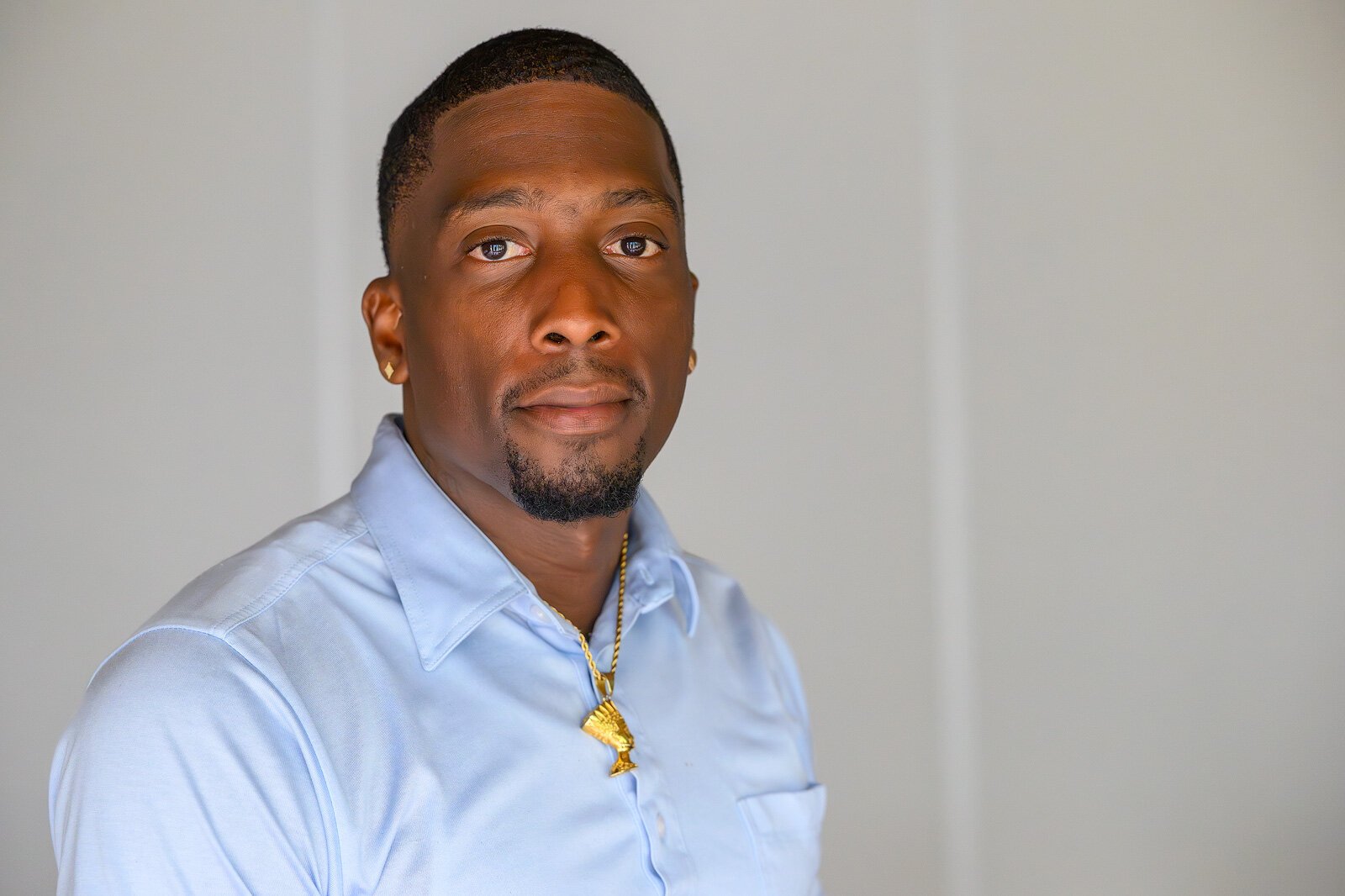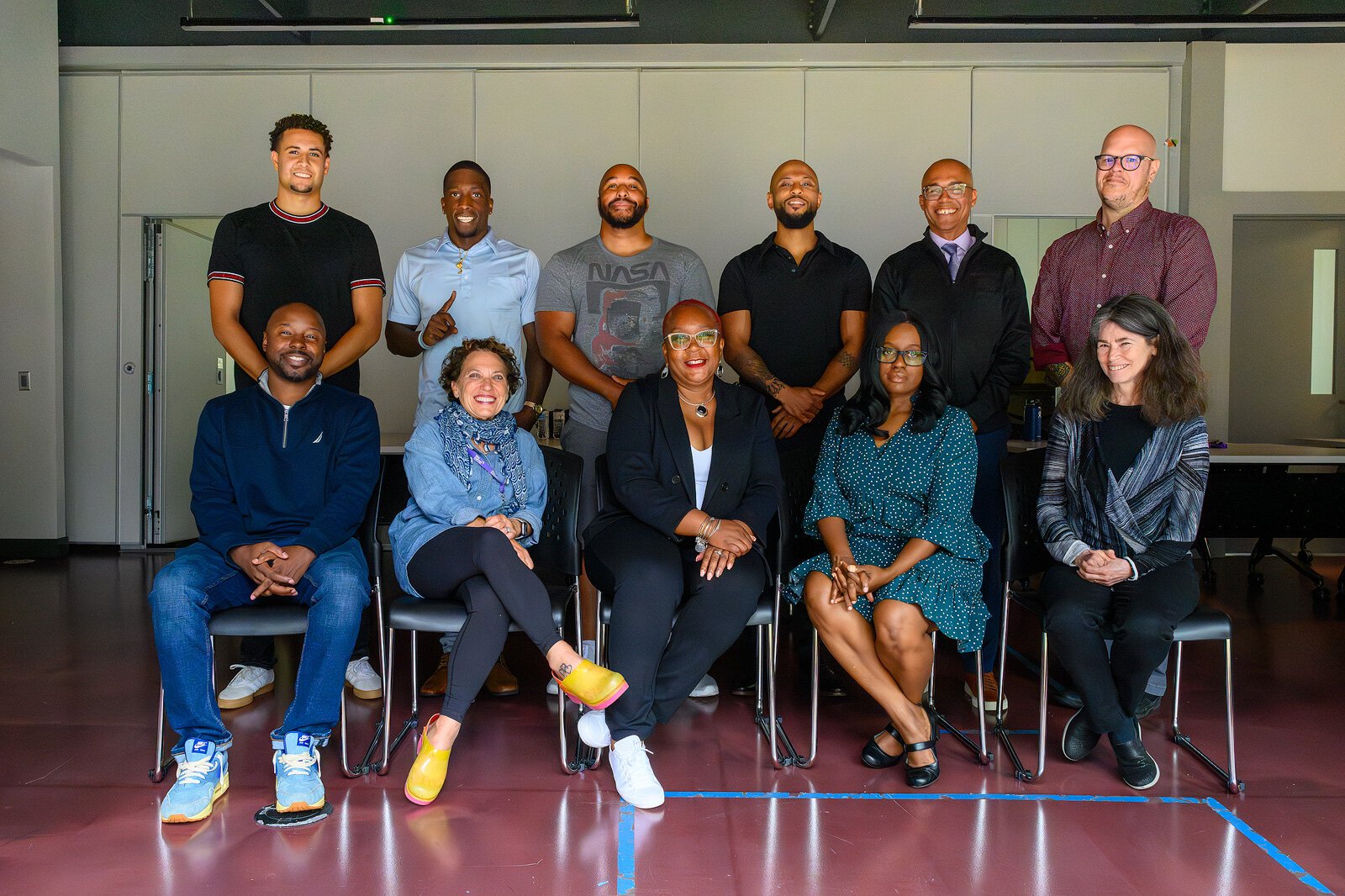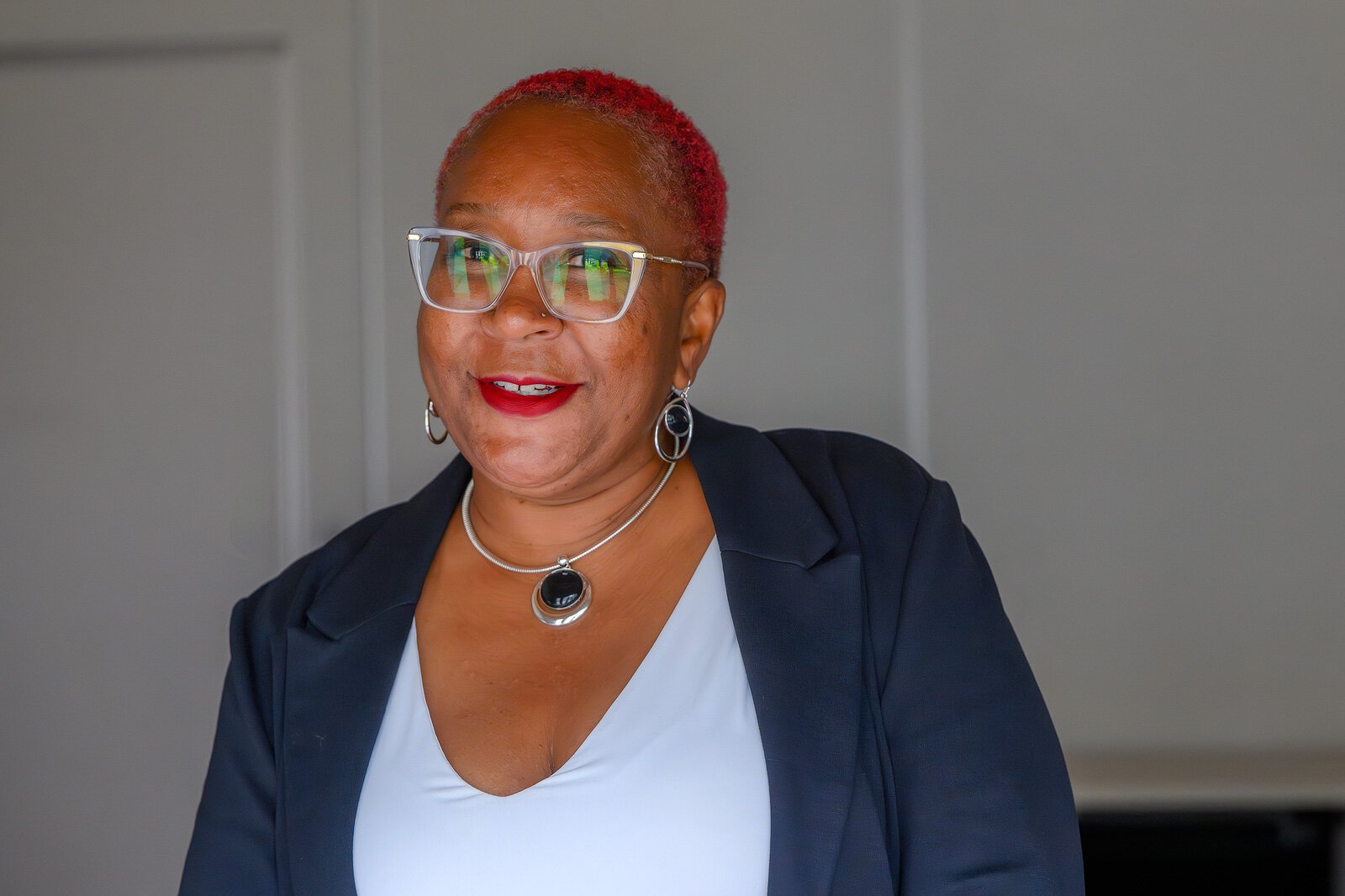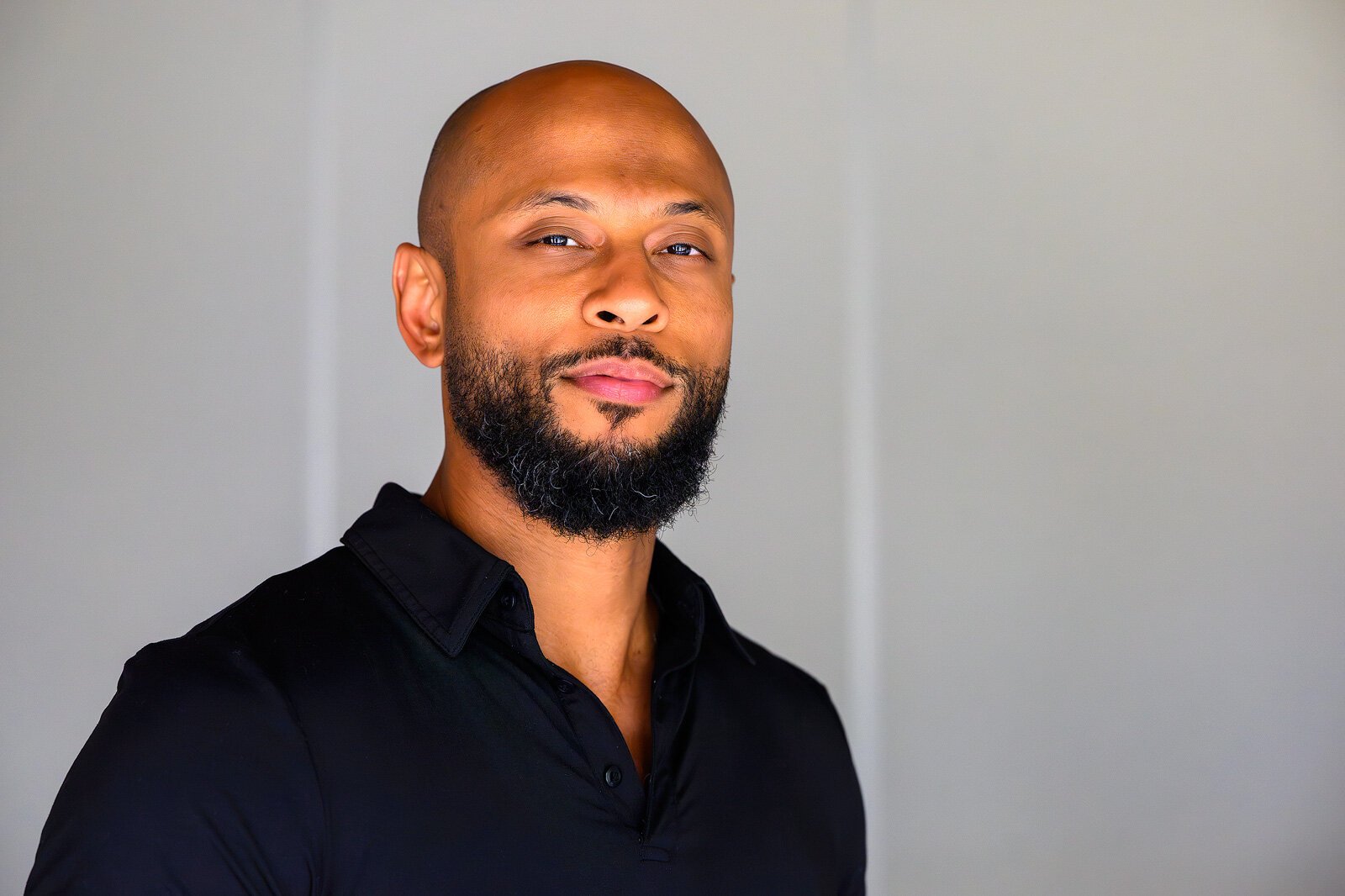Coalition funds numerous Washtenaw County organizations to support young Black men’s mental health

[ad_1]
“It was born of me having a passion for kids, and not wanting them to go through what I did growing up, the poverty and community violence,” says Leeth, who was in and out of the carceral system from age 11 through 27.
He says he’d rather help at-risk youth pursue healthy alternatives to carrying guns, selling drugs, and “all that other street stuff.” So far, his nonprofit’s mission has focused on a variety of ways to keep kids out of trouble, including tutoring, mentoring, and helping kids pay for fees and equipment so they can join a recreational sports team.  Underdawg Nation Executive Director Deshawn Leeth.
Underdawg Nation Executive Director Deshawn Leeth.
“I want to divert them and show them how I’m on the other side of turning my life over,” he says.
One of Underdawg Nation’s most recent offerings is a series of community events, including “Brunch with Psychologists,” that encourage young Black men and their family members to imagine what mental health support can look like for young Black men. Those sessions are just one of numerous outcomes of a recently completed pilot program called the Washtenaw Community Coalition to Improve the Behavioral Health of Young Black Men and Boys, which has funded Underdawg Nation and numerous other Washtenaw County organizations to create programming that directly addresses mental health in young men of color.
A coalition forms
The pilot is an initiative of the Washtenaw Community Coalition, designed to improve the behavioral health of young Black men and boys. The coalition grew from a collaboration between Ann Arbor-based Packard Health and the YBMen Project, a signature program of the University of Michigan School of Social Work’s Curtis Center for Health Equity. The Washtenaw Community Coalition was funded by a grant from the Michigan Health Endowment Fund. It also allowed the coalition to fund an engagement manager for the project.
Keith Miller, managing director of the YBMen Project, says the coalition applied for an 18-month project altogether, including the time it would take to convene community stakeholders. The coalition also examined available data on young Black men and boys in Washtenaw County and identified gaps in access to care and resources.
Miller says the coalition wanted to take the focus off deficits and what’s wrong with the community, instead starting with a focus on what resources are already in place.
“We wanted to gather individuals whose names we kept coming across and talk about what assets already exist in the community,” Miller says.  Coaltion members (back row) Jackson Greenstone, Deshawn Leeth, Justin Harper, Kiyoshi Shelton, Derrick Jackson, and Corey Telin; (front row) Jamall Bufford, Lori Bennett, Cherisa Allen, Pamela Tooson, and Jamie Abelson meet at Ozone House.
Coaltion members (back row) Jackson Greenstone, Deshawn Leeth, Justin Harper, Kiyoshi Shelton, Derrick Jackson, and Corey Telin; (front row) Jamall Bufford, Lori Bennett, Cherisa Allen, Pamela Tooson, and Jamie Abelson meet at Ozone House.
The pilot program awarded grants to a number of local nonprofits, from Underdawg Nation to Washtenaw My Brother’s Keeper (WMBK), to expand “catalyst initiatives.” These are new efforts to support mental health in local youth of color.
Miller says the idea is to fund various approaches and let organizations experiment in ways they are “uniquely positioned to do.”
“Those in closest proximity to the problem are often closest to the solution,” Miller says.
Programs catalyzed
These catalyst initiative grants spawned a wide variety of programs at nonprofits across the county. Packard Health added a Black Joy Collective Task Force composed of young Black men who will guide how the clinic continues to support them and other young Black men and boys. Corner Health Center in Ypsilanti, which provides health care to youth ages 12 to 25, held a Fatherhood Forum to see how the center could better support young fathers. (Read more about that here.)
Ann Arbor’s Huron High School hosted Young Men Empowerment Sessions after school to “expose Black male students to the power of healthy mentoring relationships,” while the Ypsi-based Black Men Wellness and Resource Center + Brotherhood, Inc. launched a series of events under the umbrella of a program called Destigmatizing Mental Health, addressing mental health in the Black community.
Ypsi-based Ozone House hosted a series of three-on-three basketball tournaments called Youth Night at the Willow. The events included music, games, and resource tables from community organizations. Meanwhile, the Washtenaw County Sheriff’s Office implemented a task force comprised of young Black men who will guide sheriff’s office programs directed at violence intervention.  YBMen Project Youth Day at the Park event.
YBMen Project Youth Day at the Park event.
Ypsilanti Community Schools and WMBK partnered for an intergenerational one-day conference called You Don’t Know My Story. Targeting young Black male high schoolers, the day consisted of panel discussions, physical fitness activities, and vision board development. In a separate project, WMBK started a support group for young Black men under the umbrella of its arts-based community program, Formula 734.
Cherisa Allen, one of the co-organizers of You Don’t Know My Story, says there is still work to be done to eliminate the stigma surrounding seeking mental health help.
“Growing up in the African-American community, it was taboo to talk to a therapist, because you didn’t take anything out of your house and go share it with a stranger,” Allen says. “And now we’re seeing the effects of not talking to a therapist and not having an outlet to share your story.” You Don’t Know My Story co-organizer Cherisa Allen.
You Don’t Know My Story co-organizer Cherisa Allen.
Miller says the Washtenaw Community Coalition’s job is to reduce barriers to mental health services for communities that may have historically had a negative experience with those types of services. Even if a young man is open to receiving counseling, he may not know where to start.
To that end, the coalition also produced a list of clinicians in the county who are experienced with, and prepared to support, Black men and boys.
The future of pilot initiatives
Miller says that funding for the pilot program technically ends this summer, but he hopes the work that came out of the project will continue. He says he’s excited that many coalition members would like to continue the work.
“Now that the structure of the coalition is there, we are working with various organizations to apply for additional funding to sustain our coalition and build on specific initiatives,” Miller says.
YBMen Engagement Manager Kiyoshi Shelton says he’s been dazzled by the way many young men have blossomed through various catalyst initiatives spawned by the program, with many taking on leadership or mentorship roles. YBMen Engagement Manager Kiyoshi Shelton.
YBMen Engagement Manager Kiyoshi Shelton.
He mentions a “young brother named AJ” who has been active with WMBK and has “evolved” in just a few months.
AJ’s transformation is courtesy of the power of mentorship, Shelton says, and now AJ has turned around and begun to mentor others.
“He’s an example of why we need mentorship and community and people like him,” Shelton says. “We want to make more AJs.”
Sarah Rigg is a freelance writer and editor in Ypsilanti Township and the project manager of On the Ground Ypsilanti. She joined Concentrate as a news writer in early 2017 and is an occasional contributor to other Issue Media Group publications. You may reach her at sarahrigg1@gmail.com.
Portraits by Doug Coombe. Event photos courtesy of YBMen.
[ad_2]
Source link
